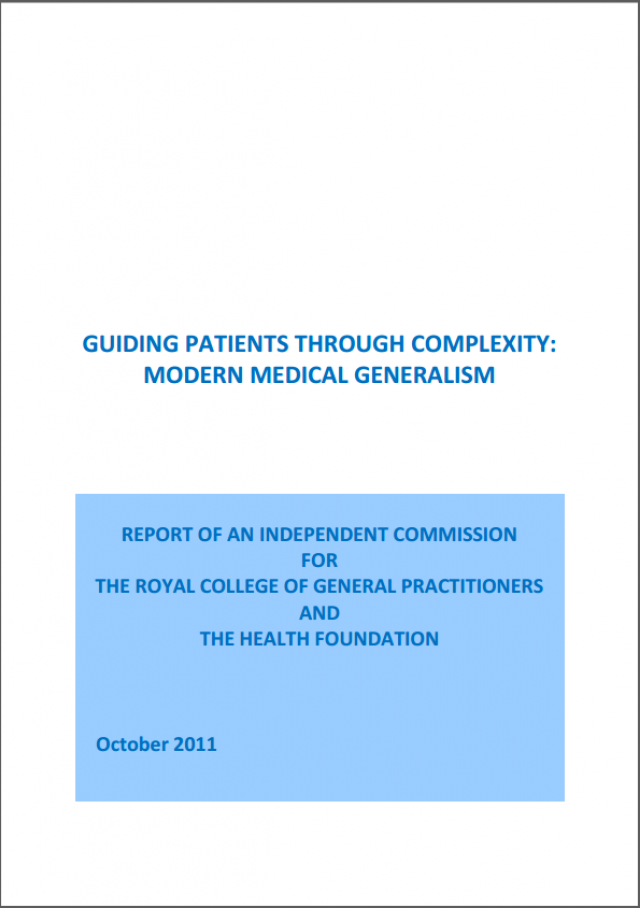Guiding patients through complexity Modern medical generalism
October 2011

Key points
The Commission made 11 recommendations:
- First presentation of illness and discussion with the patient of any treatment plan is the clear responsibility of a generalist health care professional.
- Commissioning of health care should take full account of the need for continuity of care, 24 hours a day and 7 days a week, whatever the setting.
- New models of care need to be developed for patients in the community who live with episodic or deteriorating conditions.
- Generalists need to make more and better use of new information and communication technologies to improve communication.
- To speed and improve communication among doctors, GPs and hospital consultants should liaise directly and personally.
- Reward systems for institutions should promote the concept of generalism.
- Generalists should incorporate dynamic and on-going patient feedback into their work as a matter of routine.
- Medical training needs to become much more generalist in content, with more of it taking place in primary care settings.
- Care homes should have dedicated GPs responsible for provision of medical services to their residents.
- Greater investment is needed in academic general practice.
- The Academy of Medical Royal Colleges should invite its constituent bodies to examine the Commission's definition of generalism and incorporate the principles of generalist practice into postgraduate medical curricula.
An independent commission, chaired by Baroness Finlay, has concluded that more of the most talented doctors must be encouraged to make careers as generalists rather than specialists to meet people’s changing health needs.
The Commission was set up by the Royal College of General Practitioners and the Health Foundation to examine the state of general medicine. It had the following terms of reference:
- Define medical generalism, with particular reference to general practice;
- Explore the intrinsic values of medical generalism;
- Define the role and value of medical generalism in contemporary clinical practice.
- Formulate a description of the medical generalist that:
- Is widely recognised
- Defines what patients and the public should be able to expect
- Clarifies how the medical generalist interfaces with other health care professionals
- Make recommendations about the future development of medical generalism.
Understanding and developing the role of the generalist alongside specialists is important for the quality of patient care, particularly ensuring the health service provides patient centred care and supports people with co-morbidities well.
Work with us
We look for talented and passionate individuals as everyone at the Health Foundation has an important role to play.
View current vacanciesThe Q community
Q is an initiative connecting people with improvement expertise across the UK.
Find out more

